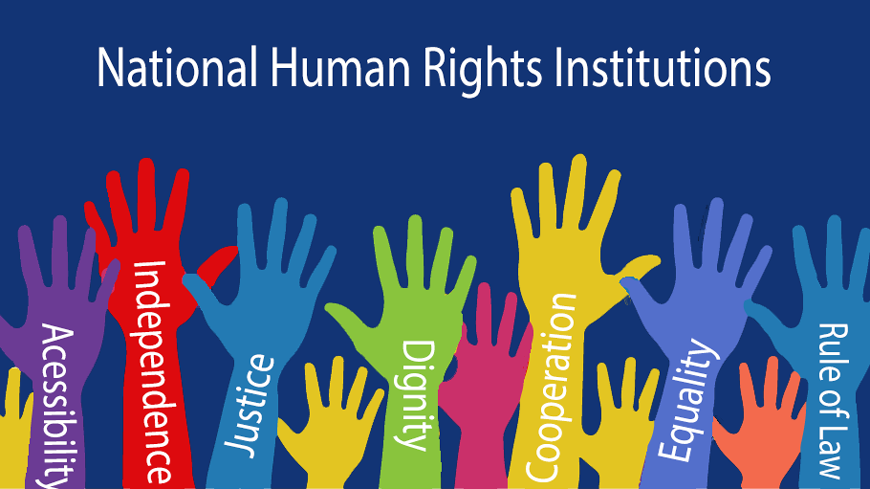The perception of international human rights as being “universal” risks oversimplifying the historical traditions that typically inform the manifestation and protection of human rights internationally. This issue is particularly poignant when examining the differences between Western and Eastern cultures: while Enlightenment thinkers played a seminal role in defining conceptions about legitimate rule in the Western world, thinkers like Karl Marx informed traditions of communist rule and legitimacy in certain Eastern cultures like China. In the former, “first generation” rights such as freedom of assembly, religion, and the rule of law are prioritized by society.[1] In the latter, “second generation” rights such as the right to economic empowerment and advancement, the right to shelter, and the right to education are prioritized.[2]
The universalization of human rights followed largely in the wake of the Second World War.[3] As the allies processed the horrors of the war and began to conceptualize the onset of international institutions, they sought to crystallize a definition of human rights that would serve as a rhetorical deterrent to the onset of another war.[4] The resulting document was the United Nation’s Universal Declaration of Human Rights (UDHR).[5] We see Enlightenment-era social contract theory echoed throughout the UDHR, which states that rights “should be protected by rule of law,” and that “a common understanding of these rights and freedoms is of the greatest importance for the full realization of this pledge.”[6]
In many Eastern countries influenced by communist ideology, social contract theory is not enmeshed in their political fabric, and the prioritization of “first generation” rights is not as logical in light of the region’s specific history.[7] Instead, communist systems understand rights as originating from state ownership and control of production, and equal distribution of wealth.[8] Rights are “collectively based, concrete, non-universal, and subordinate to state sovereignty and state security”.[9] By controlling the means of production and the distribution of wealth, communist governments hierarchically position themselves to defend the social and economic equality of their people, thereby guaranteeing their “second generation” rights.
Irreverent of these differences, Western democracies seem to prioritize only “first generation” rights when reporting on human rights abuses. Using China as an example, Western advocacy groups tend to criticize the nation for its violations of rights such as freedom of assembly and religion. The Human Rights Watch, in a report on the effectiveness of China’s 2009 National Human Rights Action Plan (NHRAP), explicitly claims that as an organization it will “not systematically [document] the Chinese government’s progress in delivering on economic, social, and cultural rights (ESCR) as articulated by the NHRAP,” but that it will rather focus on “prioritiz[ing] the exposure of the urgent and egregious abuses by the Chinese government of its citizens’ civil and political rights.”[10] The 2018 report from the same organization makes no mention the economic advancements made by China, namely the expansion of its middle class. The international discourse instead prioritizes reports of the nation’s violation of freedom of expression and religion.[11] While these activities are certainly cause for concern, there is absolutely no mention of social or economic rights.
China, on the other hand, frames their activities in an altogether different manner, emphasizing their progress in protecting the social and economic rights of their people. A Chinese government site discussing China’s efforts to promote human rights explain that compared to “old China”, when the majority of the population “lived in a state of starvation or semi-starvation,” government-promoted development has “created the miracle of supporting 22 percent of the total population of the world on only 7 percent of the world’s total cultivated land.”[12] The most recent NHRAP of China lists “Guarantee of Economic, Social and Cultural Rights” as its first human rights priority.[13]
As highlighted by these examples, developing a universal definition of human rights – one that incorporates the perspectives of different political and historical realities – is no easy task. Using the UDHR as a tool to create a singular “golden standard” for human rights is certainly tempting, and often useful. However, as the world globalizes and governments increasingly seek mechanisms to hold other nations accountable on the international stage, the importance of acknowledging contextual and historical nuances cannot be underestimated.
- Joy Gordon, The Concept of Human Rights: The History and Meaning of its Politicization, 23 Brooklyn J. Int’l L. 689, 692 (1998). ↑
- Gordon, supra note 1, at 692. ↑
- Eric Engle, Universal Human Rights: A Generational History, 12 Ann. Surv. Int’l & Comp. L. 219, 220. ↑
- Id. ↑
- G.A Res. 217 (III) A, Universal Declaration of Human Rights (Dec. 10, 1948) [hereinafter UDHR]. ↑
- UDHR, supra note 4. ↑
- Ann Kent, Human Rights: The Changing Balance-Sheet, in China in the Nineties, 64-86, 67 (David Goodman ed., 1991). ↑
- Id. ↑
- Id. ↑
- Promises Unfulfilled: An Assessment of China’s National Human Rights Action Plan, Human Rights Watch (Jan. 11, 2011), https://www.hrw.org/report/2011/01/11/promises-unfulfilled/assessment-chinas-national-human-rights-action-plan. ↑
- China: Events of 2018, Human Rights Watch, https://www.hrw.org/world-report/2019/country-chapters/china-and-tibet, (last visited Sept. 14, 2019). ↑
- Fifty Years of Progress in China’s Human Rights, Permanent Mission of China to the U.N. Office at Geneva and other Int’l Org. in Switz. (June 2000), http://www.china-un.ch/eng/bjzl/t176944.htm. ↑
- National Human Rights Action Plan of China (2009-2010), China.org.cn, http://www.china.org.cn/archive/2009-04/13/content_17595407.htm, (last visited Sept. 14, 2019). ↑


